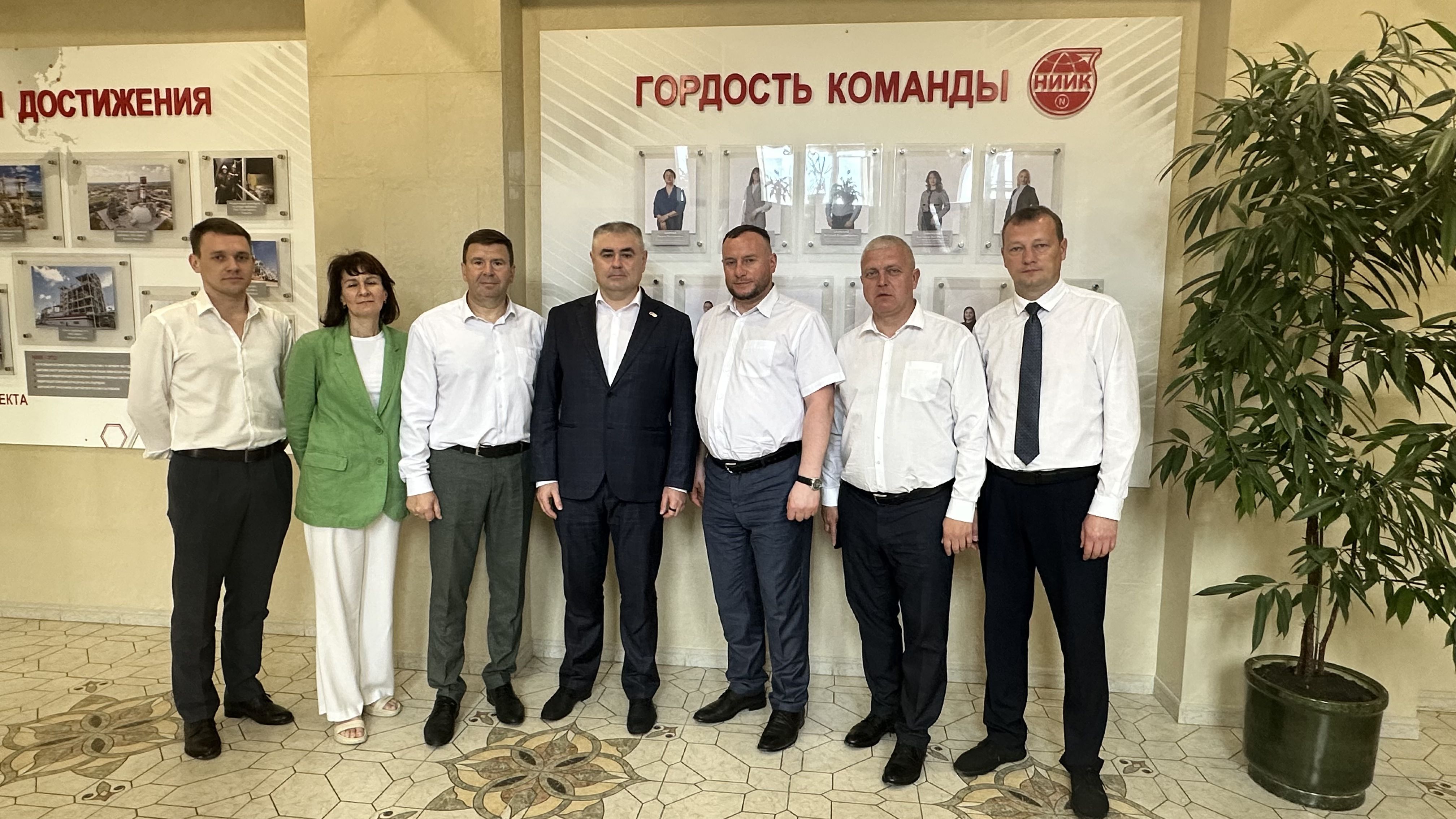 06/02/2025
06/02/2025
Delegation from Grodno visited NIIK to discuss operational experience and strengthen international cooperation within chemical industry
Dzerzhinsk and Grodno have been sister cities since 2005. Since then, these Russia’s chemical capital and Belarus’s industrial and cultural center have cooperated in tourism, education, healthcare, and culture, and regularly exchange information and share experience in trade, economics, and municipal management. Dzerzhinsk City Day and Chemist’s Day are regular occasions for visits by the Belarusian delegation.NIIK and Grodno Azot can also be considered “sister enterprises” — the contribution of both companies to the development of the mineral fertilizer sector, first in the USSR and later in the two friendly countries, is hard to overestimate. For this reason, the Grodno delegation’s visit included a tour of NIIK headquarters.
The delegation visiting Dzerzhinsk included Sergey Silivonik, First Deputy General Director and Chief Engineer of Grodno Azot; Oleg Belinsky, Chairman of the Grodno City Council of Deputies; Dmitry Savoshevich, First Deputy Chairman of the Grodno City Executive Committee; and Denis Chernyak, Head of the Culture Department of the Grodno City Executive Committee.
During the visit, negotiations were held to discuss prospects for further cooperation between NIIK and Grodno Azot. Both companies, operating in the nitrogen industry, are implementing important projects to modernize and expand production capacities for mineral fertilizers.
The joint implementation of initiatives aimed at sustainable industry development and enhancing competitiveness in Russia and Belarus, as well as internationally, could become an important step toward strengthening the positions of both companies and developing innovative technologies. During the negotiations, both sides emphasized the importance of exchanging experience and knowledge, and also considered opportunities for joint research projects and the introduction of modern solutions to improve production efficiency. This not only strengthens business ties but also creates conditions for long-term and mutually beneficial cooperation, which will ultimately have a positive impact on the development of the industry as a whole.